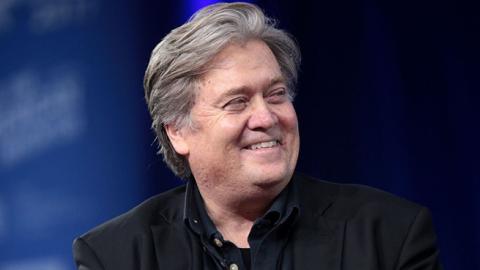The defenestration of Steve Bannon will bring some badly needed calm to the White House, at least in the short term. But the deepest crisis of confidence in American foreign policy since the 1940s isn’t going away. Neither is Mr. Bannon, as he told me in a late-night telephone conversation over the weekend.
President Trump’s highest officials remain committed, one way or another, to defending the global order the U.S. has been building since the Truman era. That includes Secretary of State Rex Tillerson, Defense Secretary Jim Mattis, Chief of Staff John Kelly and national security adviser Gen. H.R. McMaster.
These men share a disdain for the Obama administration’s retrenchment and retreat, though they are less hopeful than former President George W. Bush’s neoconservative advisers about the prospects for promoting democracy abroad. They want to check the ambitions of America’s rivals while restoring the foundations, both military and economic, of U.S. world power. For Team Trump, defending Pax Americana, costly as it may be, remains the best and even the only realistic foreign-policy option.
As they seek to “normalize” Mr. Trump’s foreign policy post-Bannon, they will face two sets of challenges. One is external: Pax Americana is growing more difficult and costly to maintain in an increasingly disorderly world. From Venezuela’s implosion to North Korea’s drive for an intercontinental nuclear missile, from the standoff in the South China Sea to the madness of the Middle East, there are urgent problems that resist easy or elegant solutions.
The second challenge is skepticism—both among the wider public and in the Oval Office—about the continuing value of conventional international relations in an evolving world. Mr. Bannon aims to deepen that skepticism, which he sees as a force that can change the trajectory of American foreign policy and politics alike.
For Mr. Bannon, the assumptions and institutions of the Pax Americana brought victory over the Soviet Union, but they are already failing in a contest with China. Beijing, he claims, has learned to game the very system that most of Washington’s established analysts believe is the key to American strength.
The traditional view is that institutions like the World Trade Organization support U.S. power and security. Mr. Bannon sees them instead as facilitating a deliberate Chinese attack on the economic strength that underpins American social cohesion and military strength. To deal with a new kind of competitor in a new kind of contest, Mr. Bannon believes, the U.S. must move away from the international architecture of the past and embark on a radically new course.
In his view, voters already sense this, even if Washington’s power brokers don’t. “The country is ahead of the elites,” he told me. As China continues to export deflation as a means to stave off economic crisis at home—what Mr. Bannon calls Beijing’s mercantilist trade strategy—he expects growing effects on the incomes and jobs of Americans. At the same time, the geopolitical threat of rising Chinese power will be increasingly felt.
Mr. Bannon’s former White House colleagues are committed to defending free trade and the “globalist” diplomacy that he thinks will be increasingly unpopular. So he hopes to separate President Trump from the national-security team now in power by making foreign policy a key issue in the 2018 and 2020 campaigns.
Leveraging the Breitbart media empire and his own star power, Mr. Bannon seeks to play the role of a latter-day Paul Revere, riding through cyberspace to warn the American people that the Chinese are coming. The goal is to create conditions for a new domestic political alignment and a fundamental shift in American strategy abroad.
This is a goal of extraordinary ambition and, some would say, arrogance. But Mr. Bannon’s ability to connect with public opinion in ways most thought impossible in 2016 suggests he should not be dismissed out of hand.
Even if his campaign is only partly successful, the foreign-policy divide inside both parties will widen. To the extent that “globalist” foreign policy comes to be identified with tolerating Chinese mercantilism, the public’s skepticism about it will likely deepen. As allies and opponents around the world perceive that domestic political support for America’s current foreign policy is weakening, friends will begin to hedge, adversaries will test, and the international environment will grow ever more challenging.
The White House will probably be a calmer place now that Steve Bannon has gone. It remains to be seen whether that quiet can extend to the country and the world.

















